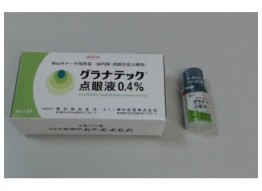What are Suglat 50 mg tablets for diabetes types 1 and 2?
Suglat tablets have demonstrated efficacy in managing both type 1 and type 2 diabetes. Their primary mechanism of action lies in their role as selective sodium-glucose cotransporter 2 (SGLT2) inhibitors. These tablets play a pivotal role in modulating blood glucose levels by specifically targeting the reabsorption process of glucose within the kidneys.
By acting as SGLT2 inhibitors, Suglat tablets impede the normal reabsorption of glucose in the renal tubules, preventing its return into the bloodstream. As a result, an increased amount of glucose is excreted from the body through urine, consequently leading to a reduction in blood glucose levels. This mechanism presents a distinct approach compared to other antidiabetic medications that primarily focus on insulin sensitivity or production.
One notable benefit of Suglat tablets is their ability to effectively control blood glucose levels across both type 1 and type 2 diabetes cases. The pharmacological profile of Suglat tablets contributes to their favorable side effect profile. Generally well-tolerated by patients, these tablets are associated with minimal adverse effects. This characteristic is particularly advantageous in enhancing patient compliance and adherence to treatment regimens.
Furthermore, studies have indicated additional effects of Suglat tablets on body composition. Notably, ipragliflozin, the active ingredient in Suglat tablets, has been observed to exert a positive influence on body mass and fat mass. While these effects may be perceived as potential advantages, it's important to note that muscle mass remains unaffected by this medication.
Active principles: ipragliflozin L-proline
Amount: 100 tablets
Maker: Astellas Pharma Inc., Tokyo, Japan
Indications: treatment of type 1 diabetes or type 2 diabetes
How to take
Type 2 diabetes: adults should take 1 tablet (50 mg of active principle) at a time, once a day before or after breakfast. If the effect is insufficient, your doctor may increase the dosage up to 2 tablets (100 mg) once a day while carefully following the course of the disease.
Type 1 diabetes: adults with insulin preparation should take 1 tablet (50 mg of active principle) at a time, once a day before or after breakfast. If the effect is insufficient, your doctor may increase the dosage up to 2 tablets (100 mg) once a day while carefully following the course of the disease.
In any case, if a patients has a severe hepatic dysfunction, the treatment may be started with low doses.
Contraindications: do not use for the following patients:
- patients with ketosis (nausea, sweet and sour smelling breath, deep and big breaths),
- patients with infections, injury, pituitary gland dysfunction, abnormal adrenal gland function, irregular meals, inadequate food intake, urinary tract infection, genital infection or liver dysfunction,
- patients in a diabetic coma or a precoma stage,
- patients in a perioperative state, in a state of poor nutrition or starvation;
- extremely underweight patients,
- debilitated patients,
- heavy drinkers,
- patients doing intense muscular exercise,
- patients with renal dysfunction or who are on dialysis,
- pregnant or breastfeeding women.
Important information
This medication might lead to hypoglycemic symptoms. Pay extra caution when working at elevated heights or operating hazardous machinery, such as driving a vehicle.
In case hypoglycemic symptoms manifest, consume sugary foods or drink juice. If you're using this medication alongside α-glucosidase inhibitors (medications that slow glucose absorption) and experience hypoglycemic symptoms, it's essential to intake glucose.
Although your blood glucose level is nearly normal, this medication could induce ketosis. Patients who should be particularly vigilant about the potential for ketoacidosis include those with type 1 diabetes mellitus, those who have reduced or halted insulin usage, those with strict carbohydrate intake limits, those who face challenges in adequate eating, or those dealing with infection or dehydration. If you have type 1 diabetes mellitus, discontinuing insulin injections is not recommended.
To counteract the potential dehydration caused by this medication, increase your water intake. Refrain from independently reducing water consumption or altering water intake levels.
If you experience recurrent diarrhea/vomiting or if reduced appetite prevents continuous food or water intake, cease medication usage.
If an allergic reaction occurs, patient needs to stop using the medicine and consult with their doctor. If patient is taking any other medication or treatment, they should consult with their doctor in advance.




